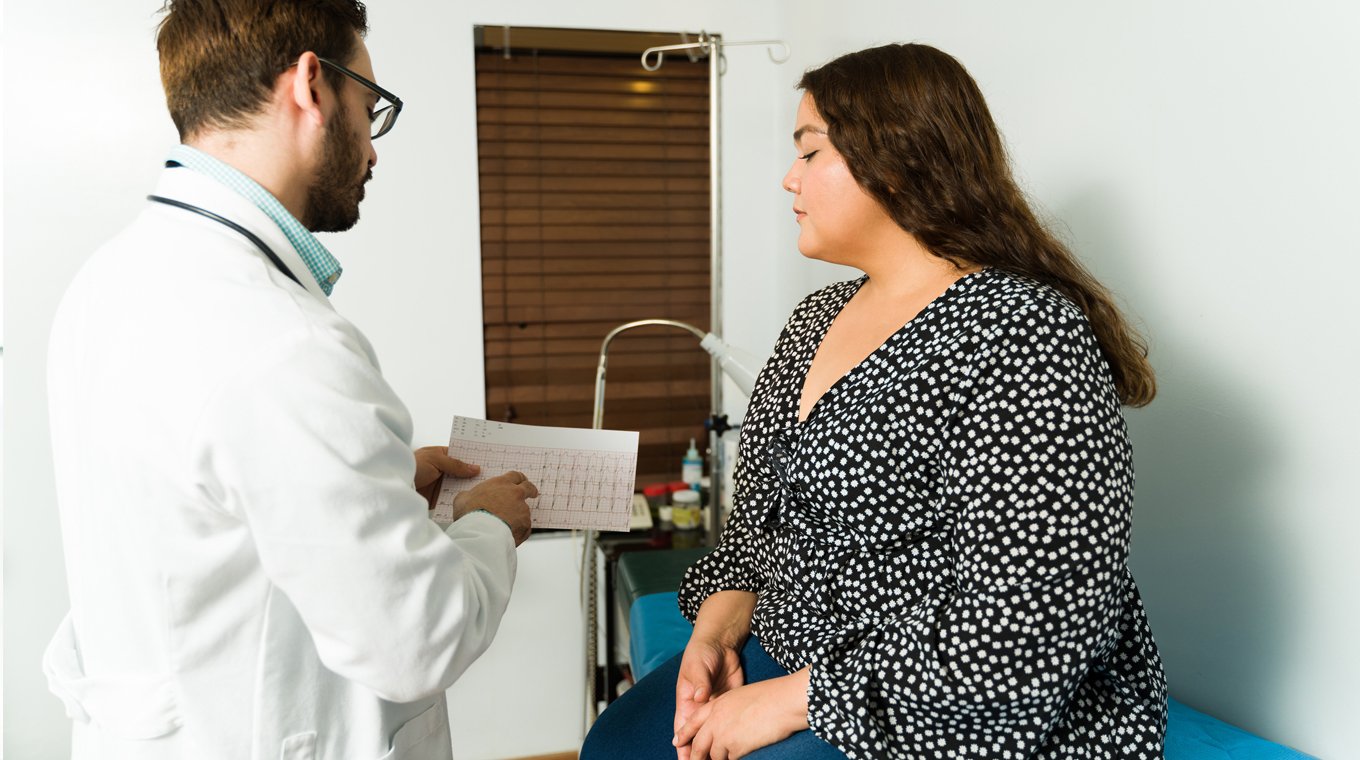
IN THIS ARTICLE
You may have seen it on the Today show, your local news, or on social media: The hottest weight loss trend right now in Hollywood (and around the world) is the diabetes medication Ozempic. You may have heard it rumored that Kim Kardashian used the drug to fit into that Marilyn Monroe dress she wore to the Met Gala (she has not commented). Or that Elon Musk is a fan.
You may have also heard that viral interest in Ozempic for weight loss has caused a global shortage of the medication, to the point where people who need the drug to manage their diabetes are having real difficulty filling their prescriptions.
And if you are someone who has had your own struggles with weight and body image, you may be wondering, what is Ozempic?
What is Ozempic used for?

Ozempic® is the brand name for a once-a-week injectable medication to treat type 2 diabetes. The main ingredient is a substance called semaglutide, and it’s one of a class of drugs known as GLP-1 agonists, which work by stimulating patients’ own bodies to create more insulin, thereby helping to more effectively regulate their blood sugar.
According to the drug’s manufacturer, Novo Nordisk, patients with Type 2 diabetes and heart disease who take Ozempic see a reduction in “the risk of major cardiovascular events such as stroke, heart attack, or death.” They also cite the possible benefit of losing a little weight.
In addition to increasing insulin production, semaglutide slows down the process of digestion, which helps patients feel full longer and delays their feelings of hunger.
“Ozempic primarily works by stimulating a specific pathway of the brain in the hypothalamus called the POMC (pro-opiomelanocortin) pathway, which instructs our bodies us to eat less and store less,” Dr. Fatima Cody Stanford told Mom.com. “Effectively, this helps you feel full for longer.” Dr. Stanford is Obesity Medicine Physician-Scientist at Massachusetts General Hospital and Associate Professor of Medicine and Pediatrics at Harvard Medical School Unit, Advisory Board Member at Sweetch.
In 2021, the FDA approved Novo Nordisk’s Wegovy — a higher-dose regimen of the same medication — as a treatment for obesity. In clinical trials, patients taking this dosage lost up to 15% of their body weight over 68 weeks.
Other pharmaceutical companies are manufacturing their own GLP-1 medications to treat type 2 diabetes (and possibly obesity). One of the most promising is Eli Lilly’s tirzepatide (brand name Mounjaro™), approved by the FDA in 2022. Mounjaro combines a GLP-1 agonist with another protein called GIP. Clinical trials indicated that patients could lose up to 20% of their body weight while taking Mounjaro (which is close to the effectiveness of surgical procedures).
The FDA is fast-tracking its review of Mounjaro as a treatment for obesity.
Is Ozempic safe?

“Ozempic is a safe medication with a variety of benefits,” Dr. Cody-Stanford told Mom.com. “This medication can be used for patients with diabetes and obesity. It should be noted that approximately 80% of patients with type two diabetes also have concurrent obesity. So, these patients garner dual benefit for the treatment of their diabetes and obesity. This medication has been shown to reduce major adverse coronary events, fatal and non-fatal heart attacks, fatal and non-fatal stroke, and a host of other benefits.”
And while weight loss might be categorized as a happy byproduct of the medication, other Ozempic side effects are not so welcome: nausea, vomiting, diarrhea, and constipation. Most patients experience just mild symptoms that diminish over a week or two, but some users simply cannot tolerate this medication and may do better with a different prescription. There’s a possibility of more serious symptoms, too. Those who feel severe stomach pain are advised to get immediate medical help, as it could indicate pancreatitis, gall bladder problems, or kidney failure.
“Patients with a history of medullary, thyroid cancer, and multiple endocrine neoplasia type two should not utilize this medication. Patients with a history of pancreatitis should take caution with this medication as it may trigger this condition,” Dr. Cody-Stanford cautioned.
How to get Ozempic prescribed for weight loss

People who are looking for a quick weight loss fix or just need to lose that last 10 pounds should not be taking Mounjaro or Ozempic. But you may be able to get a prescription for Ozempic if you have a BMI of 30 or higher, or 27 with at least one other co-morbidity (hypertension, high cholesterol, pre-diabetes, PCOS, etc).
“Weight management goes beyond just what you eat and how much you move,” said Michelle Cardel, PhD, MS, RD, head of clinical research and nutrition at Weight Watchers.
“Obesity is a chronic condition, and factors like your genetics, environment, daily habits, socioeconomic status, and your biology can all play a role in its development. Like other chronic conditions, the disease of obesity should be treated and managed over the long-term, which can include lifestyle modification programs, pharmacotherapy, surgery, or through a combination of treatment. Regardless of what treatment options you and your healthcare provider decide is right for you, a behavioral weight management program should serve as the foundation across treatment options,” Dr. Cardel told Mom.com.
Over on TikTok, people who have obtained these prescriptions are sharing their experiences.
TikTok creator Mariel (@onthecrafttable) has been taking Ozempic for pre-diabetes and weight loss. She’s been on it for 20 weeks and has lost over 50 pounds; her A1C levels have gone down into the normal range.
“Ozempic saved my life,” she informed her followers. “It changed the relationship I have with food and taking care of myself.”
“This drug is not a miracle drug,” TikTok creator Mel (@cgo_of_me) said in one of her latest videos. “It has taken me over a year to date to lose 64 pounds. And some weeks it was a half a pound, other weeks it was a pound, and it was not without effort. All this drug does is regulate a system that a lot of obese people don’t have. It gives you hunger signals in a correct way, it gives you full signals in a correct way, and it does help with cravings. So it helps with the diet, but it does not make you lose weight. You have to exercise. You have to eat right. If you don’t, you’re not going to lose weight.”
Dr. Cody-Stanford noted, “As obesity is a chronic, relapsing, remitting disease that requires lifelong therapy, if a patient finds that medications like Ozempic help regulate their weight, they should continue this method of treatment indefinitely.”
The prospect of taking a medication for the rest of your life is one you should carefully think about — especially when you add up the Ozempic cost: The retail price of a one-month supply is about $1,000. The price of Wegovy is even more. And many insurance plans will not cover this class of drugs if you are not using them to treat an existing diagnosis of diabetes.
“Obesity is a chronic condition and requires long-term care and treatment. Just like we would expect long-term treatment for any other chronic condition (e.g., diabetes, hypertension), patients with obesity deserve that same access to evidence-based care,” Dr. Cardel said.
“There is very promising and exciting evidence regarding the efficacy and safety of these new prescription weight loss medications when combined with an evidence-based lifestyle modification program,” said Dr. Cardel. “Your healthcare provider should be up to date on the latest research and information on these weight loss medications to determine if they’re right for you — alongside a science-backed, behavioral weight management program to help you achieve your goals and practice healthy habits that will set you up for long-term success.”




